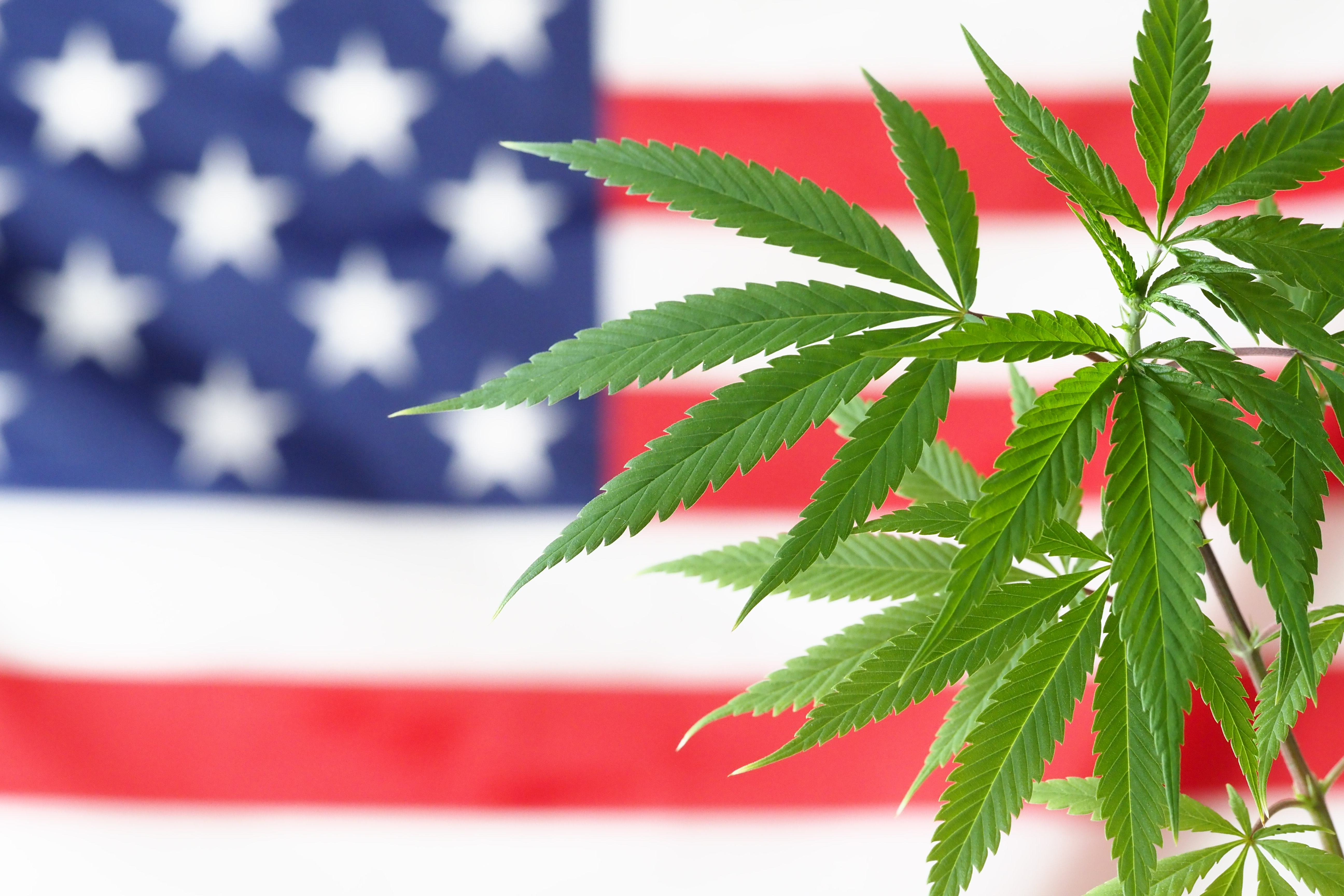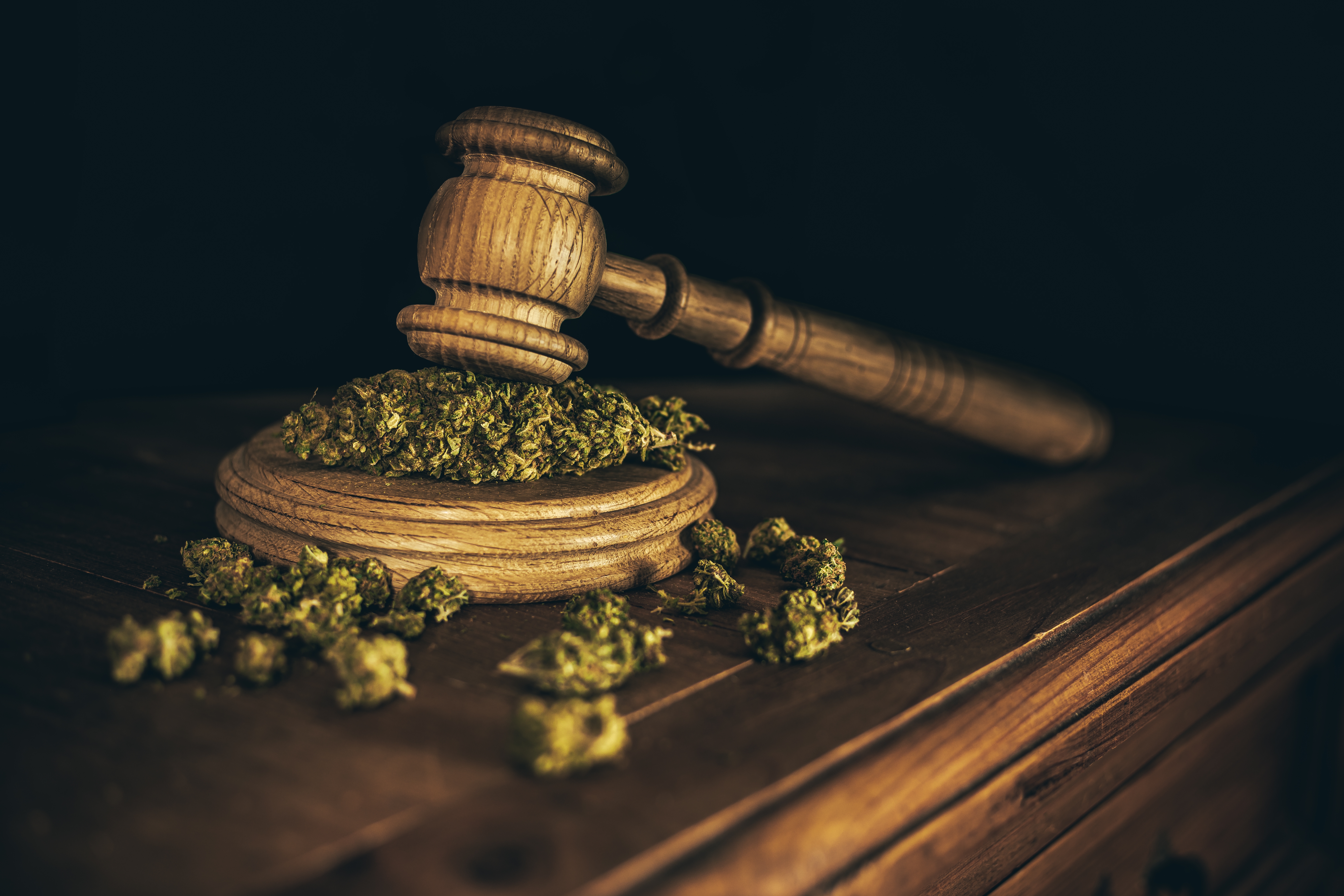
Friday April 14, 2023
By PotGuide
 News
News
Most states have legalized cannabis for medical use, recreational use, or both. However, there are still a handful of states that have not yet legalized cannabis, and the prospect of near-term legalization varies from state to state.
As of 2023, the United States has continued to make strides towards cannabis legalization, with several states legalizing cannabis for both medicinal and recreational purposes. However, there are still a handful of states that have yet to adopt cannabis reform.
The reasons why these states have not yet legalized cannabis vary. Some states have conservative political leanings and are hesitant to legalize a substance that was once demonized as a dangerous drug. Others are concerned about the potential negative effects of cannabis use, such as impaired driving or addiction. Still, others may simply lack the infrastructure or resources to effectively regulate cannabis if it were to be legalized.
Which States Have Not Legalized Cannabis?
As of 2023, here are the states that have not legalized cannabis in any form:
- Idaho
- Wyoming
- Kansas
- Tennessee
- Alabama
- South Carolina
- Nebraska
- North Carolina
- Indiana
- Wisconsin
- Kentucky - Medical Approved as of March 2023
A Closer Look At Each State
Despite the success in other states, these states continue to cite various concerns and opposition to cannabis legalization, including fears of increased crime rates and potential negative effects on public health.
Let's take a closer look at some of the states that have not yet legalized cannabis, and what the prospects of near-term legalization look like. There are signs of progress:
Alabama
Alabama has some of the strictest cannabis laws in the country. Possession of any amount of cannabis is a misdemeanor offense punishable by up to a year in jail and a $6,000 fine. However, there is growing support for medical cannabis in the state. In 2021, the Alabama legislature passed a bill that would legalize medical cannabis, but it was vetoed by Governor Kay Ivey. Supporters of medical cannabis are hopeful that a similar bill will be passed in the future.
Georgia
Georgia has a limited medical cannabis program that allows for the use of low-THC cannabis oil for certain medical conditions. However, the state has not yet legalized cannabis for adult recreational use, and possession of any amount of cannabis is a misdemeanor offense. There is some support for cannabis legalization in the state, particularly in Atlanta and other urban areas, but it remains to be seen whether the state legislature will take up the issue.

Idaho
Idaho has some of the strictest cannabis laws in the country. Possession of any amount of cannabis is a misdemeanor offense punishable by up to a year in jail and a $1,000 fine. The state also has a constitutional amendment that prohibits the legalization of cannabis. However, there are efforts underway to change the state's cannabis laws. In 2021, a bill was introduced in the state legislature that would legalize medical cannabis, but it did not pass.
Wyoming
Wyoming is one of the seven states in the United States that has not yet legalized cannabis in any form. However, there have been some signs of progress towards cannabis reform in the state. In 2021, lawmakers introduced a bill to legalize medicinal cannabis, but it ultimately failed to pass. Despite this setback, lawmakers have indicated that they will continue to push for cannabis reform in future legislative sessions. Therefore, while Wyoming has not yet fully legalized cannabis, there are indications that the state may be moving towards broader cannabis reform in the future.
Kansas
Kansas has not yet fully legalized cannabis. However, the state has made some strides towards cannabis reform in recent years. In 2022, lawmakers introduced a bill to expand the state's medical cannabis program, which was ultimately passed into law. While Kansas still has not legalized cannabis for recreational use, this is a positive step towards broader cannabis reform in the state. Additionally, it suggests that lawmakers in Kansas are open to the idea of cannabis reform and may continue to push for further changes in the future.

Tennessee
In Tennessee, the state has made progress towards cannabis reform in recent years. In 2021, lawmakers passed a bill to expand the state's medical cannabis program, allowing for the use of high-THC cannabis products for qualifying patients. Additionally, lawmakers have introduced several bills in 2022 to further expand the state's medical cannabis program, indicating growing support for cannabis reform in the state. While Tennessee has not yet legalized cannabis for recreational use, these developments suggest that the state may be moving towards broader cannabis reform in the future.
South Carolina
South Carolina has made some progress towards cannabis reform in recent years. In 2021, lawmakers passed a bill to legalize medicinal cannabis for patients with qualifying conditions. While the law is limited in scope and does not allow for smokable cannabis, it is a positive step towards broader cannabis reform in the state. Additionally, in 2022, lawmakers introduced a bill to legalize adult-use cannabis, which is currently pending in the legislature. While it remains to be seen whether this bill will ultimately pass, it suggests that there is growing support for cannabis reform in South Carolina.
North Carolina
In North Carolina, cannabis for both medical and recreational purposes is illegal.
However, in 2014, North Carolina passed the North Carolina Epilepsy Alternative Treatment Act, which allows patients with intractable epilepsy to use and possess hemp extract containing less than 0.9% THC and at least 5% CBD, with a recommendation from a neurologist. As of April 2023, there are no adult-use or medical cannabis legalization initiatives on the ballot or being considered in the state legislature.
In 2022, the N.C. Senate passed a medical cannabis bill, but the House of Representatives took no action. North Carolina is one of only 11 states that has not approved a medical cannabis program in the U.S.
Indiana
Cannabis remains illegal in Indiana, with the exception of CBD products containing less than .3% THC. Indiana law explicitly exempts CBD (cannabidiol) products containing less than 0.3 percent THC from the state’s criminal definition of marijuana, making them legal to possess and sell in accordance with applicable licensing laws.
Wisconsin
Wisconsin has been willing to open the door to cannabidiol or (CBD) to patients with a physician's prescription. CBD is a derivative produced from a species of cannabis that has been shown to have some beneficial effects without causing the sensation of getting "high". The laws passed so far are:
- Lydia's Law: Legalized cannabis oil that contains low levels of THC to treat specific seizure disorders in children, with a prescription.
- Senate Bill 10: Allowed citizens to possess and use CBD with a prescription
What Are The Potential Benefits Of Legalizing For These States?
Cannabis legalization has had a range of positive effects on states that have chosen to legalize it. One of the most significant benefits is increased tax revenue, with states such as Colorado collecting billions of dollars in tax revenue from cannabis sales since legalization. Additionally, legalization has created thousands of new jobs in the cannabis industry, from cultivation and production to retail positions.

Legalization has also helped to reduce black market activity and the associated criminal activity that comes with it. Furthermore, cannabis has proven medical benefits for a range of conditions, and legalization allows patients with these conditions to access medical cannabis products in a safe and regulated manner. Studies have also found that states with medical cannabis programs have lower rates of opioid overdose deaths, suggesting that cannabis can be used as an alternative to opioids for pain management.
Legalization can have social justice benefits by reducing the number of people arrested and incarcerated for cannabis-related offenses, particularly in communities of color. Overall, the benefits of cannabis legalization can vary depending on the specific policies implemented by each state, but states that have legalized cannabis have generally seen positive effects in terms of tax revenue, job creation, public health, and social justice.
Summary
Overall, while there is still work to be done, there are signs of progress towards cannabis legalization in some of the states that have yet to adopt cannabis reform. As public opinion continues to shift towards cannabis legalization and more states adopt reform, it is likely that these remaining states will also follow suit in the coming years. In the meantime, we’ll keep our fingers crossed.







